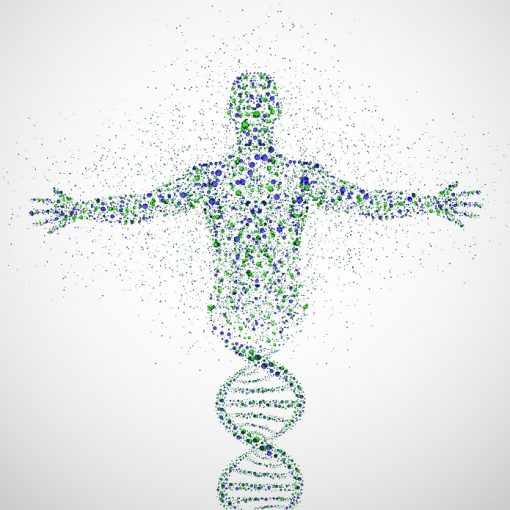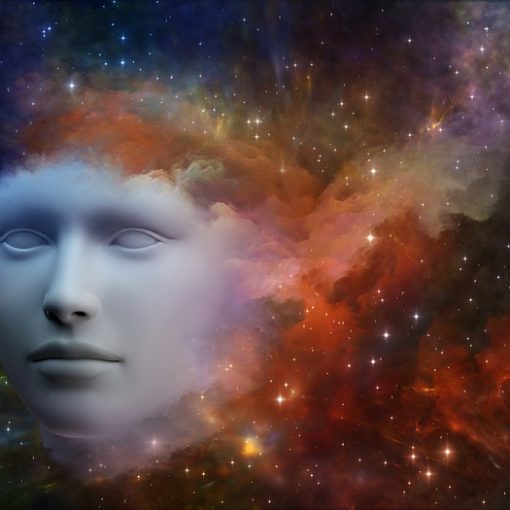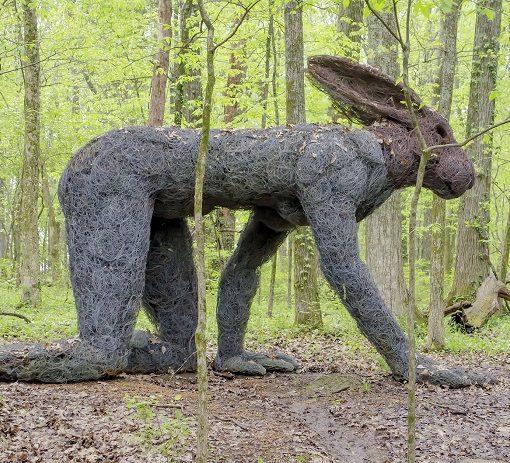
Editor’s Note: Member Professor Erland Lagerroth celebrated his 90th birthday this year. As you will see from the autobiography and article below, he has been a prolific and pioneering author in Swedish. He was prominent enough to attract the attention of Swedish skeptics, who awarded him the title of ‘Misleader of the Year’ – a tribute to his moral and intellectual courage in standing up for an approach beyond standard materialism.

Novels. I have a double history and experience. I started out studying literature, especially novels. Gradually I found out that a novel is best looked upon as a process, an epic process that creates relationships with the world it traverses, thereby building an epic world that was not there before and could not have been foreseen. A world of systems and complications of all kinds. In this way one can study what the novel does; to act out its meaning and so contribute to our knowledge and understanding. This is impossible to understand, if we apply the “fundamental concepts of analysis”: person, action, milieu, point of view etc. Novels are no additions and fixed forms but ways to insight and understanding.
World and life. Lately I understood that this is the case also with the great novel, the world we live in, the life we live. This world and life is not an addition of separate parts, but a functional whole and unity. So the analytical, reductionist science from Galileo and onward, which understands the world in a new way, is wrong. It has given us an enormous amount of knowledge, but disregarding the relationships between parts (which are invisible and so may be overlooked), they have falsified the world we live in without us understanding it. It remains for us to see that we live in a sea of relationships, systems and wholes.
From disorder to order. A key to understanding this is the Belusov-Zjabotinsky reaction, that led to Belusovs tragedy and finally to Prigogine´s Nobel prize. The Russian Belusov mixed a number of ingredients in a solution and found out that it produced distinctive patterns. But this was said to be impossible, because everyone knew that nature always goes from order to disorder. But Belusov, who was discouraged and left science, was right. There are two opposite movements in Nature: from order to disorder and the opposite. Creation was an enormous quantum fluctuation that crystallized atoms, molecules, stars and planets, all with higher complexity. The university has a dynamic tendency towards emergent complexity.
God or mechanism? In the history of mankind there have been two kinds of ideas of the world. First and foremost the idea that the world was created by God. But Galileo, Descartes, Newton, Laplace, Darwin etc. launched another idea that the world is some kind of mechanism: a materialistic and deterministic world that could be fully understood as that.
Self-organization. An impossible choice one might think – if there were not a third, generally overlooked alternative. And immensely tenable, the relations between atoms in the molecule. The world creates itself, it is self-organizing. All of it. This organization can be tremendously large, as the earth itself. As one of my informants, Denis Noble, expressed it: the composer of the piece of music we call the earth is a process.
The greatest privilege. How the world once came about I don´t know and shall never know. One reason perhaps being that one cannot understand the rise of a whole out from a detail inside it. Anyhow, I don´t believe in any being, who in incomprehensible ways has created these myriads af universes, galaxies, suns and planets and who, at the same time, if we have been good enough, listens to our prayers for this and that. On the contrary, I believe in a nature that during this wonderful but quite comprehensible evolution certainly is cruel, but that brings forth this whole fantastic chain of life and at the end this privilege that the Swedish poet and Nobel-prize winner Verner von Heidenstam praised on his tombstone as “incomprehensible”: to live on earth a life as a human being:

Earth favoured in spite of ice. In addition it appears that the earth both astronomically and historically is exceptionally favoured. Mars is too cold and Venus too hot, and the other planets are impossible to live on, of course. Both in our universe and in others there might exist other planets but of them we know nothing. Ice age-periods have been many and long-lasting on earth, but evidently it has been possible to survive in Africa. After a big ice-age that ended 10000 years ago, today we live in an “interglacial period”, that is especially favorable for life.
Heaven is on earth. So I am a man of the earth and not of heaven. I never had and never searched for any contact with Jesus, God or “Heaven”. What I admire and embrace is what the Swedish poet Evert Taube so happily calls Angle-ground and Heaven-Earth. Heaven — we have it here on earth. Not perfect, of course; the perfect and absolute are but categories of thought without correspondence in reality. (Furthermore, perfect for whom – man or tick?). Mathematics, of course, is in a way perfect and absolute and has a relationship to reality, but is completely abstract.) To top it all we ourselves often transform this heaven to its opposite. The great example, of course, is Adolf Hitler.
The function of the earth. Copernicus, Galileo, Newton and Darwin etc. gave us a new knowledge of nature, but they did not produce any total, unifying functions that could replace the activities that earlier epochs ascribed to gods. Only with the work of Ilya Prigogine and Erich Jantsch did we get these: dissipative structures, self-organizing systems. Not until now are we ready to understand the function of the world.
The circulation of sun-energy on earth. Processes and systems like these need energy to function. Their explanation is one of the cornerstones of the existence of the earth: they exploit “free energy”, energy of high quality that the sun radiates to the planet, and that can be used before it leaves again for space as low quality energy (Carnot-cycle). It is like a waterfall: the energy in the fall can drive any organism or machine. Especially through the wonderful process of photosynthesis that gives us all vegetation on earth and so all life. The earth is one big organism – not a mechanism – driven by energy from the sun in its unbelievably complicated circulation on earth.
The end of certainty. One of Prigogine´s books is called The End of Certainty. Yes, of course, the world is not something given, the future of which can be calculated to the last decimal, but something dynamic, unforeseeable. A world that organizes itself can always offer surprises. The key concepts are emergent, emergency. Almost anything might happen, and we cannot know for sure what. The world is not deterministic. I think this is good for life; we seldom die from boredom.
Nature and artifacts. The great line of division in the world is not between man and nature, but between nature and the world of artifacts that man has created and lives in. Man is himself a part of nature, who in order to extract energy from the environment needs a mouth, stomach and more than 7 meters of guts, not to speak of the highly complicated distribution systems of blood and breathing. This wonderful construction is explainable only by the enormous space of time that it took to create him.
But those systems have created themselves and because of that are in many ways more beautiful and intricate than artifacts. Especially so with the most complicated phenomenon in the universe, the human brain. And with the brain the spiritual sphere. Here lies the ground for the riddle that the spiritual always seem to have its prerequisite in the material.
Artifacts and nature. I have noticed there is a tendency today to speculate whether mobiles and other complicated constructions have some kind of “inner life”. To me this is just silliness. It misses the distinction between artifact and nature. Our constructions are artifacts made by us, but the self-organizing systems in nature are just that. They have organized themselves, so perfectly that one must think of some kind of inner life.
So the inventions of life have grown organically, by disturbances and crises in accordance with the function of the emergent world. In contrast, the inventions of man were created by rational thinking, conscious constructions. The most common invention to extract energy needs only a cylinder, a piston and a spark. Man has found other, simpler ways than nature.
But this is dangerous. Using these “unnatural” ways we jeopardize the functioning of the Earth. It is hard to see that man has the maturity and wisdom to avoid this.
(14 books + one autobiography:Glad, lycklig och privilegierad. Ljusa minnen. 2014)
As for my situation in Sweden, I have several admirers, and my impression is that I am ways ahead of my colleagues. Not in their specialties of course, but in my specialty the results of which I have related above. And, of course, I have a personal development that is rather unusual.
Anyhow I am an outlaw and it is quite possible that my contribution never will be discovered in academia. So much more important that my books exist and are noticed in journals like Network Review.
A story of my life
I was born 1925 in Lund in southern Sweden, but my father was appointed senior master at a school in Stockholm, so we moved there later the same year and lived for eight years in a new western suburb, Smedslätten. That developed into my first love: woods, lake Mälaren, villas and winding roads. So I grew up as a “Stockholmer” and always wanted to stay there.
My father was appointed professor in political science at the university in Lund, so in 1933 we had to move back to Lund. I took my G.C.I at A level and Bachelor of Arts (in Geography, Literature and Slavic languages) there and then moved back to Stockholm. But before that came a most important decision. I met a beautiful, gifted, responsible girl from Malmö, Ulla-Britta Holmström and we married in 1949, and are still married to-day. In contrast to me she ended as a professor in Literature in Lund.
In Stockholm I worked at the State Trade- and Industry-commission (including taking part in controlling Marshall-plan financed goods together with an American accountant), but I realized I wanted to continue with my studies. It ended up with a doctoral thesis Landscape and Nature in Gösta Berling´s saga and The Wonderful Adventures of Nils. And an oral defense at the university of Stockholm in 1958, five days before Selma Lagerlöf would have turned 100 years.
The press took notice as did a new, second professor in literature in Stockholm. In contrast to the old professor he did not like the book at all, so he succeeded in preventing me from continuing in Stockholm. Later on I learned that this is a common fate for dissertations with new ideas; my father had the same experience in 1915.
Furthermore there was a deep conflict between the treatment of humanities in Uppsala and Stockholm on one side, and Lund on the other, and my thesis was just a small pawn in this big game. The former explained history as a mechanical course of influences or a biologically fixed, foreseeable process: natural science, as derived from from Galileo, Newton, Descartes and Laplace, serving as a standard for the humanities. But the humanities are something quite different and this was understood in Lund: the latter saw it as a product of human will, individuality, intelligence, unexpected leaps, inventions, literary or artistic innovations. Man is not a passive product of inheritance and environment. The environment itself is passive, can only give “Aufforderungzum Tanz”. (Carl Fehrman, professor in Lund, in Forskningiförvandling 93.) Without knowing it I defended my thesis at the wrong university.
Instead I succeeded in becoming a visiting professor 1959-60 at Augustana College, Rock Island, Illinois, a Swedish-American college. I was there for a year and it was a wonderful time. But in the meantime I was summoned to be “docent” and then a senior lecturer in Lund where I was until 1991 when I retired. In 1964 I was a visiting professor at the University of California in Berkeley. In 1982 I was also nominated as Senior Professor in literature there.
It resulted in 9 books on novels and literature. Gradually I shifted over from the world in the novel, to the big process and world we all take part in: to live in this wonderful world. Similar viewpoints could be applied and the perspectives are so much greater.
Together with Joachim Israel, professor of sociology, I gave the research course Towards a holistic dialectical paradigm, three times in Lund and once in Örebro. Eight times I applied for full professorship, but in vain. My new ideas were too new and too many. And, of course, literature was not the focus of my later books. But I had a good income and now I have a good pension, so I don´t complain.
And I was free to write books on my new subject and ideas, 14 in total:
Towards a New Science 1986
The Re-enchantment of Science and the World 1994
New Thoughts, New Worlds 1999
Searching is Our Greatest Adventure 2003
Beyond Darwin and DNA 2004
The World is More Wonderful than We Think 2006
Humanist among Scientists 2008
Between Atoms and the Universe 2010
The World Creates Itself 2011
To Live as Human Being on Earth 2012
The World and Science – an Unhappy Marriage? 2012
Is the World a Mechanism? 2013
To Think Freely is Great; to Think Rightly is Greater 2014
The Last Settlement 2015
In between I also wrote a small autobiography: Cheerful, Happy and Privileged. Light Memories2014.
I was in military service at The Swedish air-force and was happy to fly the Swedish-built fighter J 22. I crossed Sweden up to the mountains in the north, first twice by bicycle and then once hitch-hiking with Ulla-Britta (back over the mountains through Norway). In my youth I was a competition swimmer (small local star) and a runner in competitions until I turned 78.




